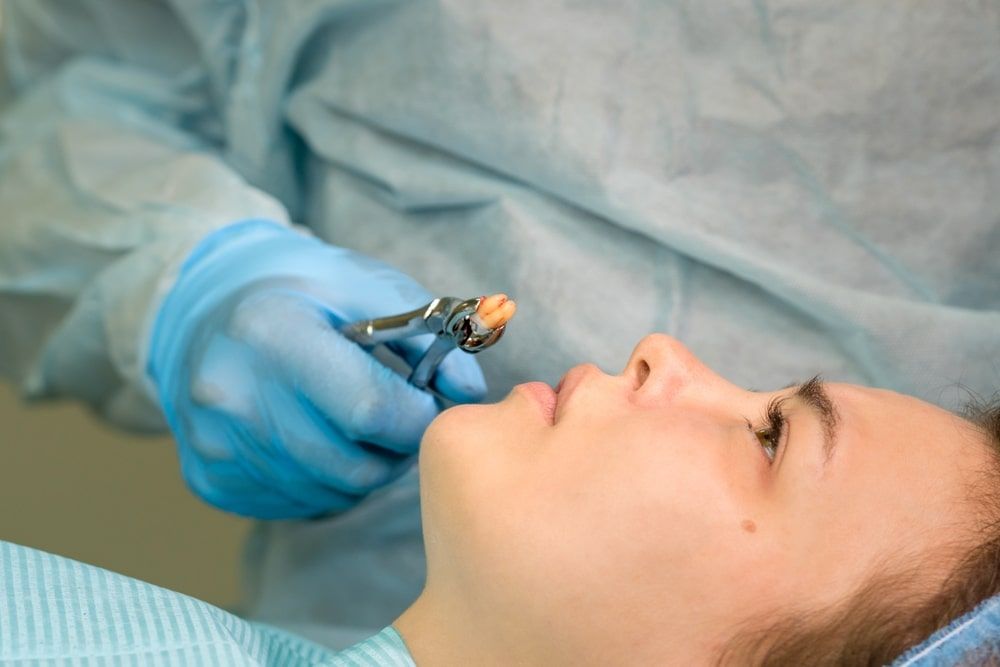Wisdom teeth, also known as third molars, are the last set to emerge, typically between the ages of 17 and 25. While some individuals experience no complications, wisdom teeth can often cause crowding, pain, and other dental issues if the jaw has insufficient space. Understanding the symptoms, why treatment is necessary, and how the procedure is performed is essential for maintaining optimal oral health.
Symptoms of Impacted or Problematic Wisdom Teeth
- Swelling in the gums behind the molars
- Pain or tenderness in the back of the mouth
- Red, swollen, or bleeding gums
- Jaw stiffness or difficulty opening the mouth fully
- Headaches or pain around the jaw or ear
- Bad breath or an unpleasant taste in the mouth
- Difficulty eating or chewing
Why This Is Needed
When wisdom teeth become impacted or grow at odd angles, they can cause various oral health problems. These issues include infection, overcrowding, and damage to surrounding teeth. Ignoring the symptoms can lead to severe pain and more invasive dental procedures in the future.
Early wisdom teeth removal can prevent complications like cysts, tumors, or damage to nearby teeth and bones. If left untreated, impacted wisdom teeth can cause severe infections that affect your overall health. By addressing wisdom teeth early, you safeguard not only your dental health but also your general well-being.
Treatment Process: Wisdom Teeth Extraction
Wisdom teeth extraction is a common procedure performed by dental professionals. Depending on the complexity of the extraction and the patient’s comfort level, it can be done under local anesthesia or sedation.
- Initial Consultation: The dentist will assess your wisdom teeth with X-rays and a physical examination to determine the position and any potential issues they may cause. This step helps decide whether extraction is necessary.
- Preparation: Before the procedure, you’ll receive anesthesia to ensure painless extraction. Depending on the complexity, the dentist may opt for local anesthesia or conscious sedation to keep you comfortable.
- Extraction Procedure: The dentist makes a small incision in the gum to expose the tooth and surrounding bone. The wisdom tooth may be removed in sections to minimize the impact on surrounding tissues.
- Post-Extraction Care: After removal, the incision is closed with stitches, and gauze is placed to control bleeding. Recovery instructions will include tips for managing pain swelling, and maintaining oral hygiene during healing.
Prevention of Wisdom Teeth Complications
While not all wisdom teeth require removal, regular dental checkups are vital for monitoring their development. The earlier you address potential issues, the easier to avoid complications.
Proper oral hygiene, including brushing and flossing behind the molars, can help prevent infections and gum disease related to wisdom teeth. However, even with good care, impacted wisdom teeth can still cause issues, making professional evaluations essential.
Long-Term Benefits of Wisdom Teeth Extraction
Removing problematic wisdom teeth can relieve chronic pain and discomfort, especially if they are causing crowding or pressure on neighboring teeth. This reduction in discomfort allows patients to enjoy normal chewing and speaking functions without pain or hindrance.
Removing impacted or misaligned wisdom teeth early reduces the risk of future complications like tooth decay, gum disease, or infections that could spread to other areas. Extraction also minimizes the likelihood of needing more complex dental treatments in the future, protecting your overall dental health.
Frequently Asked Questions
- Why do wisdom teeth need to be removed?
Due to the limited space in the jaw, wisdom teeth often cause overcrowding, pain, or infection. Removal prevents these issues from worsening. - Is wisdom teeth removal painful?
The procedure is performed under local anesthesia or sedation, ensuring you feel no pain during extraction. Post-procedure discomfort can be managed with pain relievers. - How long is the recovery after wisdom teeth extraction?
Most patients recover within a week, but it may take up to two weeks for complete healing. Following aftercare instructions speeds up recovery. - Can I prevent wisdom teeth from causing problems?
While you can’t prevent their growth, regular dental checkups allow your dentist to monitor their development and intervene before complications arise. - What can I eat after wisdom teeth removal?
Stick to soft foods like yogurt, applesauce, and soups for a few days. Avoid hard, crunchy, or hot foods that may irritate the surgical area.
Take Control of Your Dental Health Today
Wisdom teeth can pose challenges for your oral health, but early detection and treatment prevent many of these issues. If you suspect your wisdom teeth are causing discomfort or complications, scheduling a consultation with our dental team is the first step toward relief. At Dental Touch Clinic, we are dedicated to providing personalized care and expert wisdom teeth extraction to protect your smile.
Maintaining regular dental checkups and seeking prompt treatment can significantly improve your long-term oral health. Our clinic in Oakville, Ontario, is here to help ensure your wisdom teeth and overall dental health are well-managed.

